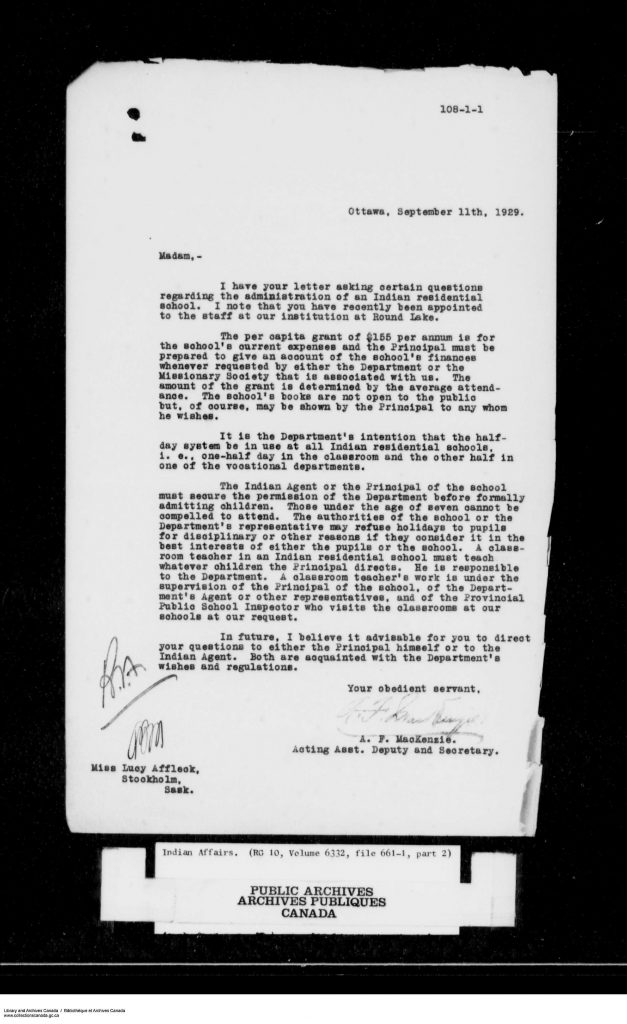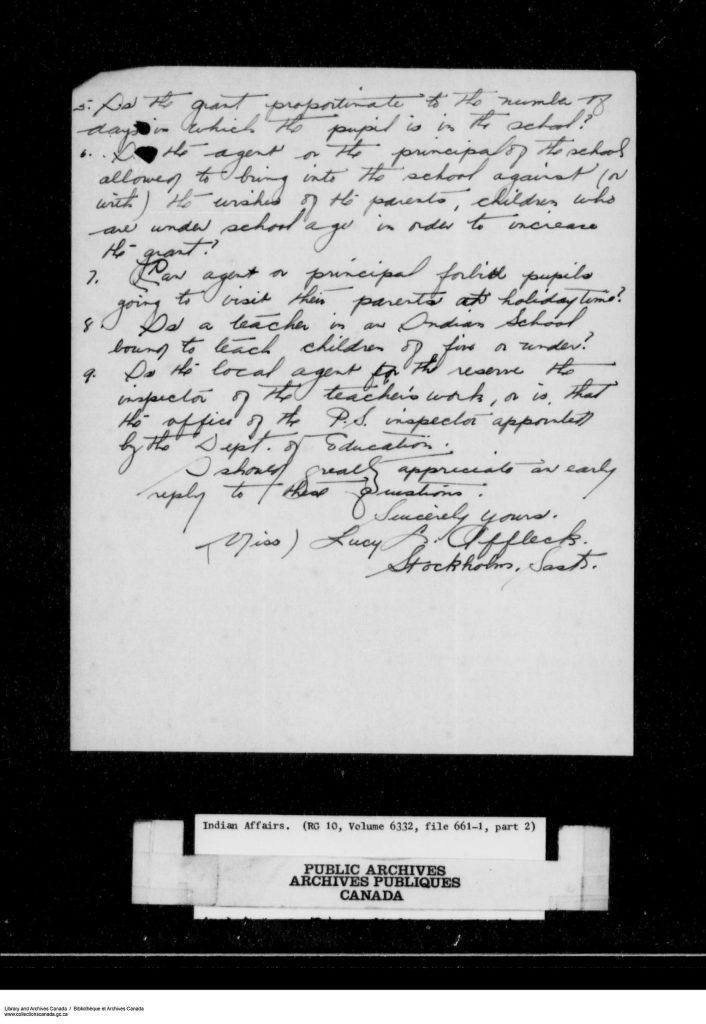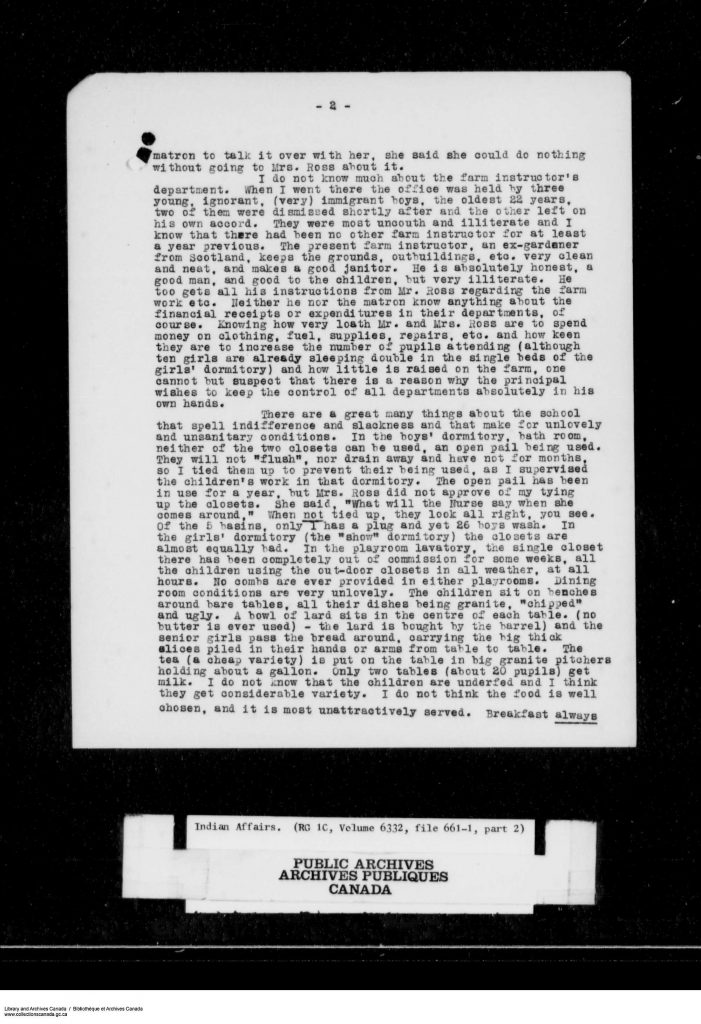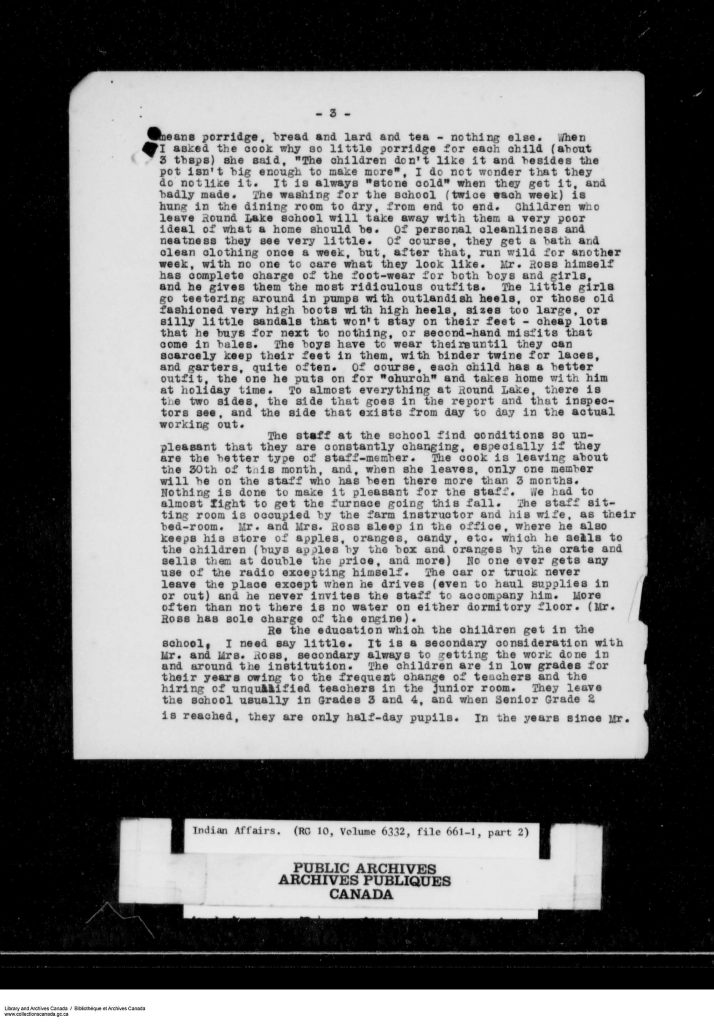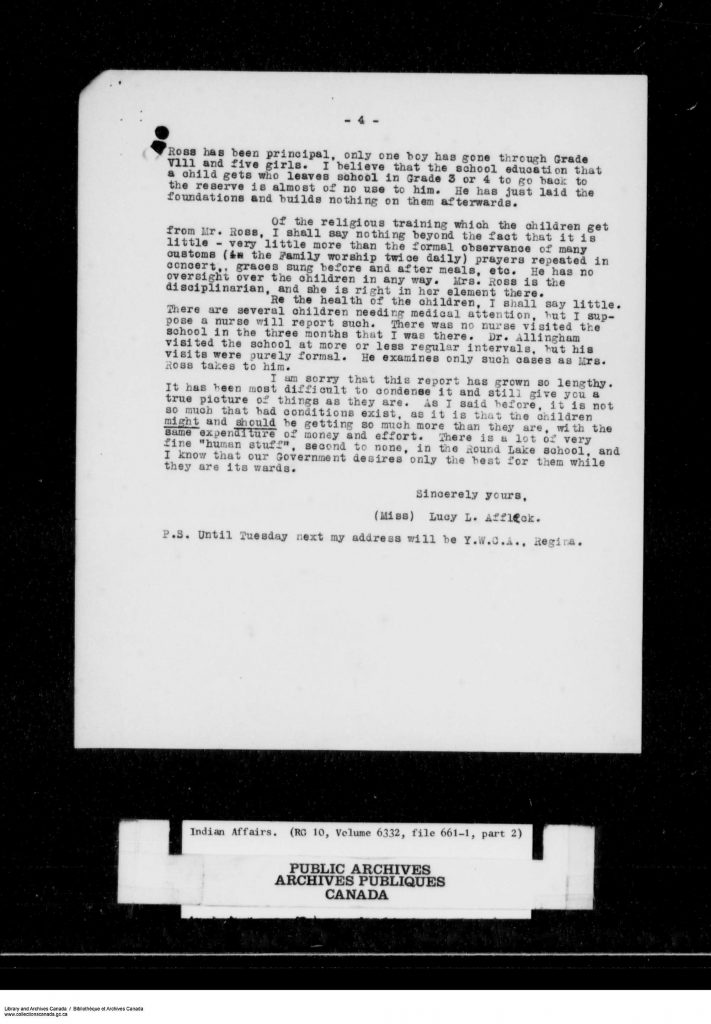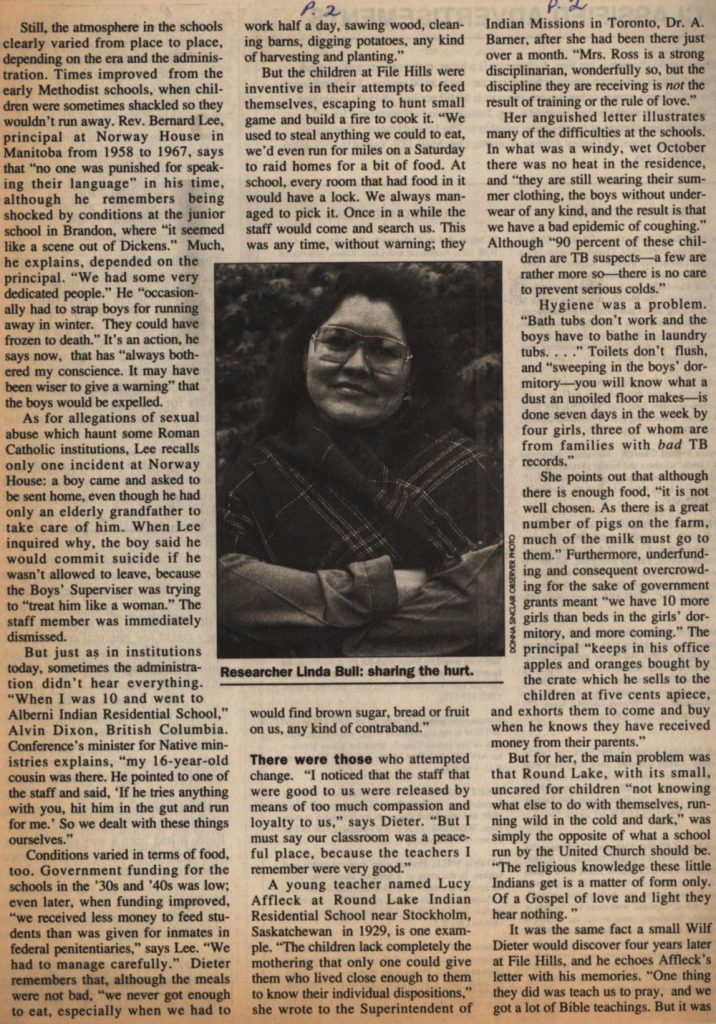Criticisms of Staff Member Lucy Affleck
In 1929, when Lucy Affleck was teaching at the Round Lake school, she wrote a lengthy and highly critical letter about the school to Arthur Barner, who was then the superintendent of Indian missions for the United Church. Affleck felt that the conflicts between staff and the principal, R. J. Ross, were aggravated by the fact that the principal’s wife’s mother had served as school matron. She was unofficially replaced by the principal’s wife, who, since she also taught at the school, had little time to carry out these additional tasks. Relations were further strained by the fact that the principal and his wife had vacated their residence and were living in the school, making it difficult “to keep a qualified, efficient matron ‘on the job.’” According to Affleck, the principal’s wife, Mrs. Ross, “is a strong disciplinarian, wonderfully so, but the discipline is not the result of training or the rule of love.”400 Superintendent Barner responded to her letter by advising her that “steps would be taken at once to improve the situation.”
A month later, Affleck was fired. In doing so, Principal Ross told her that “the church demands the immediate dismissal of any one disloyal to the staff.”401
Affleck repeated most of her concerns in a letter to Indian Commissioner Graham after her dismissal.402 Little of this would have been news to Graham. That fall, he had already receive a highly critical inspector’s report on the school from A. G. Hamilton, who had disapproved of the fact that the principal and his wife were living in the school rather than in the residence provided for them, since they had turned rooms intended for school purposes into private rooms. At that time, there were already eight girls without beds, and four more coming. This corroborated Lucy Affleck’s charge that the school was overcrowded.403 Both Hamilton’s report and a recent school inspector’s report from the fall of 1929 had nothing but the highest of praise for Affleck’s abilities as a teacher.404 Despite this, Affleck was gone and R. J. Ross, who had taken over the school in 1922, continued on in his post as principal until his retirement in 1939.405
Lucy Affleck, a teacher at Round Lake, Saskatchewan, wrote in 1929 that while the food at the school was of a good variety and sufficient quantity, “it is not very well chosen and is very unattractively served. As there are a great number of pigs raised on the farm, much of the milk must go to them so only one table of girls (about 12) get milk at meal-time. None of the children ever get butter. It is always lard, that they must use on their bread (bought in barrels).”31 (Vol. 1, Part 1, p.493)
Another version of Lucy Affleck’s story
Lucy Affleck’s questions about the administration of an Indian Residential School to Acting Assistant Deputy and Secretary of Indian Affairs A. F. MacKenzie
